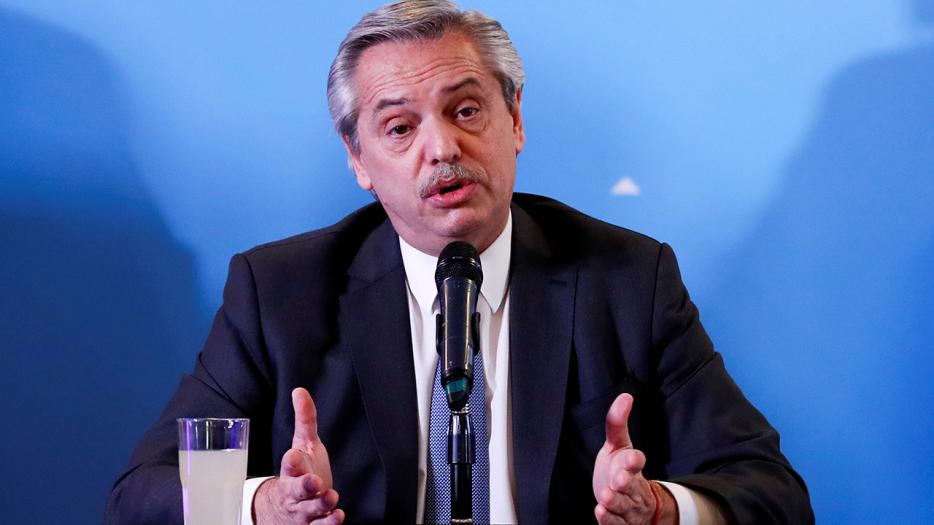Tanya Wadhwa
The new Argentinian President Alberto Fernández, within 13 days of assuming office, has taken a number of measures to reverse the socio-economic crisis created by the previous right-wing government of Mauricio Macri. The new President, who hails from the Frente de Todos (Front for All), a coalition of center-left parties, took office on December 10.
The national government has called special sessions of the National Congress from December 13 to 31 in order to discuss and pass several bills addressing the economic, food, health and social crisis facing the country.
Economic measures
On December 21, the Argentine Senate approved the bill of “Social Solidarity and Productive Reactivation,” proposed by President Fernández to curb the recession, with 41 votes in favor, 23 against and one abstention.
A day before, on December 20, the Chamber of Deputies had approved it with 134 votes in favor and 110 against it after debating it for more than 15 hours and adding some modifications.
With this law, the national government aims at declaring an emergency in economic, financial, administrative, energy, fiscal, health, pension, social and tariff matters. It is focused on taxing the wealthy and allocating greater resources towards social spending.
Among other measures, the new law freezes the prices of basic public services, such as electricity, gas, transportation and water, until June 30, 2020.
The law completely or partially exempts all small and medium-sized enterprises (SMEs) from paying property taxes in order to encourage their participation in providing employment and eventual economic development of the country.
It contemplates the creation of a special tax, known as the “Country Tax”, which will be charged on the purchase of foreign currencies, air tickets and tourist packages to travel abroad as well as cash withdrawals and expenses made in a foreign country.
Also, it increases the withholding tax by soybeans, corn and wheat exporters, so as to increase their contribution in solving the economic crisis.
Earlier, on December 17, President Fernández and the governors, including those of the opposition, agreed to suspend the application of Fiscal Pact for one year, signed in November 2017 between provincial leaders and the former president Macri. With this decision, taxes such as income tax, real estate taxes and stamp duties will be reduced.
On December 14, the government approved the Decree of Need and Emergency with the objective to counteract the effects of economic crisis. The decree prevents possible mass dismissals in the private sector and further deterioration of the labour market. It established that a private sector worker dismissed without a justified reason in the next six months, will receive double the compensation that they are currently entitled to.
Social measures
On December 16, President Fernández and Health Minister Ginés González Garcí held a meeting with representatives of the pharmaceutical industry. In the meeting, all national and foreign laboratories agreed to reduce the prices of medicines by 8% and keep them frozen until the end of January 2020.
The same day, Fernández announced that the retirees who receive pension, would get an additional bonus of 5,000 Argentine pesos in the months of December and January. Retirees and pensioners will also receive free medicine. In addition, the beneficiaries of the Universal Child Allowance (AUH), a social protection plan for special and underprivileged children, will also get an extra bonus of 2,000 pesos for these two months.
On December 20, the national government began the debate on the Food Emergency bill in the Senate, in order to address the serious situation of food insecurity facing the country.
In addition, under the Food Plan that will be launched on December 24, the government announced that it would distribute 2 million food cards in order to combat hunger in the country. With the help of these cards, poor citizens will be able to purchase basic food products worth 4,000 pesos a month for free. Under the scheme, the government will give 4,000 pesos per month to women, who are three months pregnant or have a child up to six years old and 6,000 pesos to those women who have two or more children.
Measures guaranteeing women’s rights
On December 12, the new Health Minister Ginés González García announced a new protocol to guarantee legal interruption of pregnancy as provided by the current law. He announced that for any case that falls within the current legislation, the abortion would be performed without the need of a court order and within a maximum period of 10 days.
In Argentina, abortions are legal only in case of a rape and when the life of a pregnant woman is at risk. However, despite the law, the right to legal and safe abortion is not always guaranteed as different provinces, health centers and professionals refuse to comply with it.
Following the announcement, the next day, on December 13, an administrative court suspended the precautionary measure that prohibited the sale of misoprostol in pharmacies. Misoprostol is a drug suitable for performing a safe medical abortion and will now be available in all pharmacies throughout the country.
Commitment to reverse Macri’s policy of repression
On December 15, Security Minister Sabina Frederic, in an interview with a national media outlet Página 12, stated that the national government would repeal the protocols decreed by the former Security Minister Patricia Bullrich. Bullrich passed resolutions that legalized trigger-happy use of firearms and authorized the national police greater liberty to shoot to kill a person who tries to escape and represents an imminent danger.
Regional integration
In terms of regional integration, Fernández stood with the socialist and progressive governments of the region, such as Cuba and Venezuela. Both, Cuban President Miguel Díaz Canel as well as former Venezuelan Vice-president Jorge Rodríguez, traveled to Argentina to attend Fernández’s swearing in ceremony.
Rodríguez’s presence in Argentina overruled the sanctions and travel ban applied by previous Argentine government against Venezuelan President Nicolas Maduro and his ministers under the Inter-American Treaty of Reciprocal Assistance (TIAR). Only seven days ago, on December 3, Argentina among other right-wing governments of the region, had approved a range of sanctions against 29 Venezuelan ministers.
In addition, on December 11, Fernández and Diaz Canel held a meeting at the presidential palace and consolidated diplomatic and economic ties between Cuba and Argentina.
Fernández also supported the democratically elected Bolivian President Evo Morales, who was overthrown on November 10 by a US backed military coup and sought political asylum in Mexico on November 11.
Just two days after assuming office, on December 12, the new Foreign Minister, Felipe Solá, granted political asylum in Argentina to Morales, Vice-president Alvaro Garcia Linera and three other ministers and their families.
(Tanya Wadhwa writes for People’s Dispatch.)




